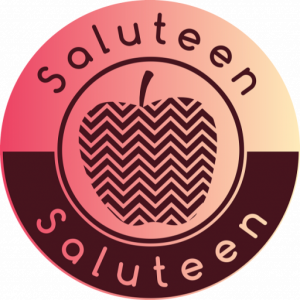Socialising, attending parties, and having fun with friends are important parts of life, especially during your teenage years. These events can be memorable and exciting without the need for drugs. Unfortunately, drug use can turn a fun night into a regrettable one, leading to embarrassing moments, health risks, or even legal trouble. Understanding the risks of substances like vaping cannabis, spiking, and ecstasy is essential for making informed decisions that keep the fun alive while staying safe.
Vaping Cannabis: Hidden Dangers
Many young people believe that vaping cannabis is a safer alternative to smoking. However, this assumption is not only misguided but dangerous. Vaping cannabis oil or liquid can expose users to harmful chemicals, including synthetic cannabinoids, which are far more potent and unpredictable than the natural THC found in cannabis. In recent years, hospitals have reported an increase in cases of severe lung damage caused by vaping, some of which resulted in life-threatening conditions.
The effects of vaping cannabis can be unpredictable, particularly because the strength of THC in vapes can vary widely. Often, people take several puffs before they realise how strong the substance is, leading to an overwhelming or dangerous reaction. Unlike smoking or eating edibles, vaping cannabis delivers concentrated doses of THC, increasing the risk of paranoia, hallucinations, or even serious health problems.
If you or someone you know experiences negative effects after vaping, it is important to stop, monitor your symptoms, and seek medical help if necessary. Knowing the risks and using caution is critical, even in social settings where vaping may seem harmless.
Spiking: The Law and How to Protect Yourself
Spiking, or the act of secretly adding drugs or alcohol to someone’s drink, is a serious and dangerous crime. Whether done as a cruel joke or with malicious intent, spiking can lead to severe consequences, including robbery, assault, or worse. In recent years, there have also been reports of spiking through needle injections, although this is much less common than drink spiking.
To protect yourself and your friends, it’s essential to be aware of your surroundings. Always buy your own drink, watch it being poured, and never leave it unattended. If you feel strange or more intoxicated than expected, seek help immediately. Many venues now have the “Ask for Angela” initiative, where you can discreetly ask for assistance if you feel unsafe. Simply approach a staff member and say you’re looking for “Angela” to receive help without drawing unwanted attention.
Legally, spiking is a serious offence. According to the Sexual Offences Act 2003, administering a substance to someone with the intent to overpower them can result in up to 10 years in prison, even if no harm comes to the victim. Reporting any instance of spiking is essential to help prevent further incidents and hold offenders accountable.
Ecstasy: The Risks Behind the Pill
Ecstasy, or MDMA, is a well-known party drug, often used to enhance the experience of social events and dancing. However, the risks associated with ecstasy are significant and should not be underestimated. Ecstasy pills are often mixed with other drugs, some of which can be even more harmful than MDMA itself. You never truly know what you’re consuming, which makes each pill potentially dangerous.
MDMA can lead to dehydration, overheating, and in some cases, death. Its effect on body temperature regulation means that users who are dancing or engaging in physical activity are at risk of overheating, which can cause heatstroke. To stay safe, it’s important to take regular breaks, cool down, and stay hydrated. However, drinking too much water can also be dangerous, so it’s recommended to sip no more than a pint of water per hour.
Even if you feel the initial effects are mild, the comedown from MDMA can be harsh, leading to feelings of anxiety, depression, and physical exhaustion. If you ever feel unwell after taking any substance, it is vital to seek help right away. Your health and well-being should always come first.
By understanding the risks of these substances, you can make safer, more informed choices while still enjoying social activities. Remember, there’s no need for drugs to have a good time—you can have fun and make lasting memories without putting your health or safety at risk.
Your health is more important than the party.

